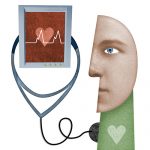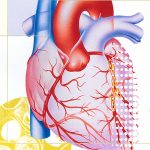heart attack
December 1, 2012

Longer CPR, longer life?
Hospitals that continue CPR longer have better survival rates for patients whose hearts have stopped beating, according to a study led by Zachary Goldberger, Acting Assistant Professor of Medicine in the Division of Cardiology at Harborview Medical Center.
September 1, 2012

Hope for broken hearts
Cardiology researchers at the UW are engaged in exciting work to explore whether a patient’s own stem cells can foster the regeneration of damaged heart muscle.
June 1, 2011

Risk factor
Sudden cardiac death affects about 1 in 43,000 NCAA athletes, according to a new UW study.
June 1, 2005

Antibiotics won't do it
Could bacteria also be a culprit in heart disease? In April the UW released the first results of a study — and the verdict so far for C. pneumoniae is not guilty.
September 1, 2000
Heart attack study
Older women are less likely to receive early treatment following a heart attack than older men and are more likely to be assigned a do-not-resuscitate order during their hospital stay, UW researchers reported.
September 1, 1999

For the heart
UW Professor Thomas Grayston is principal investigator of an $11 million grant to see if killing a form of bacteria reduces heart attacks.
June 1, 1997
Drugs, surgery show equal results for heart-attack patients in study
Heart attack patients show nearly identical survival rates, whether treated with powerful anti-clotting drugs or with balloon angioplasty, say UW researchers.
June 1, 1996
Women at greater risk of death after heart attack treatment
An international team of researchers found that women treated for heart attack with blood clot-dissolving drugs have a considerably greater risk of death and serious complications compared to men.
June 1, 1995

Meds raise risk
Calcium-channel blockers, widely prescribed to lower high blood pressure, may actually increase the risk of heart attack by as much as 60 percent.